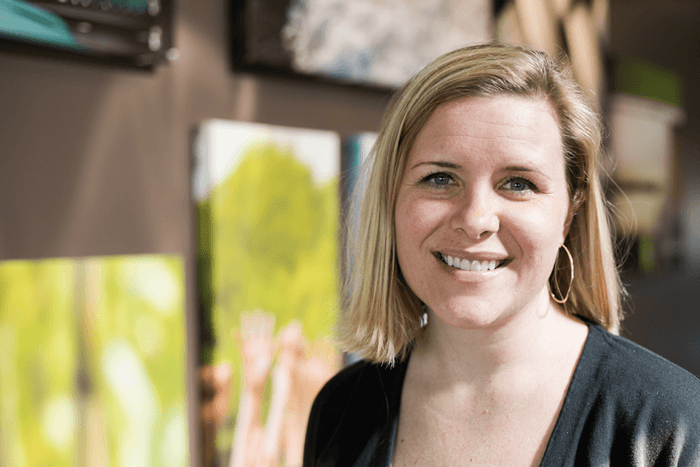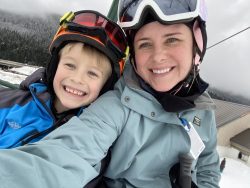Q&A with Dr. Jenée Myers Twitchell, Chief Impact and Policy Officer

Q: Why did you decide to join Washington STEM?
While at the University of Washington, I did my PhD dissertation on the regional STEM Networks and their collective action. At the end of my dissertation, I had some findings about needing to be more data-driven and the importance of anti-racism work. Washington STEM’s CEO at the time said: “We’ve been thinking about wanting to do more of that work, and I’d like you to help me write a job description for something that we’re going to call the Impact team.” At the end of writing that job description, I thought: “I definitely need to work here.” So I applied.
Q: What do equity in STEM education and career mean to you?
When the word equity comes up, it goes hand-in-hand with anti-racism work. It means that we should never do policy work, measurement work, or data work without the students, families, and educators about whom the data is measuring. We’re striving to make sure that we’re accurately reflecting their stories and experiences so that we can co-create a future that better supports the students we’re aiming to serve. And that’s the same through policy work. When we design policies with the very folks who are going to be impacted by them, it’s much more likely that those policies will be implemented and implemented stronger.
Q: Why did you choose your career?
I grew up in eastern Washington, in the Yakima Valley. I was the first in my family to go off to any form of postsecondary education or college, let alone to get a PhD. I grew up in a pretty poor family that also had a history of drug and alcohol abuse. At the same time, I was a white woman surrounded by other folks with white privilege. I noticed a dramatic difference between how I was able to navigate my situation versus some of my peers and friends of color.
Partly in order to get over some of the trauma and also some of the frustration, I’ve made this my life’s work. This is how I’m getting through my own experiences and the experiences of my peers. My career is not something I would ever give up – it is my entire life’s work.

Q: What inspires you?
The first thing that always comes to mind is the students that I get to work with. At Washington STEM, I get to support PhD and graduate student fellows and they are some of the fiercest, most amazing students that I have ever met. They bring so much expertise and really help shape the work that we’re doing. It reminds me that we’re really walking-the-walk in terms of co-creating futures with the very students that we want to support. I also teach as an adjunct at the University of Washington, where I get to work with these early career professionals who are coming out of these systems.
I’m also inspired by working directly with professionals and students in schools and communities and turning that into long-term policy changes. Being able to see change happen while also thinking about longer-term enabling environments helps me scratch an itch every day about needing to make change now, as well as setting up for future systemic change.
Q: What are some of your favorite things about Washington state?
It’s a great challenge for the mind, senses, and career to work in such a diverse state — both in terms of its people and geographically. We can go hiking in the high desert, snowshoeing in the mountains, or kayaking in the ocean — all within a couple hours’ drive. We also get to work with 29 federally recognized tribes, as well as immigrant populations from all over the world – whether it’s Latinx migrants in Eastern Washington or Southeast Asian immigrants in South Seattle. I love the diversity of people and environment that is combined in our state.
Q: What’s one thing about you that people can’t find out through the Internet?
When I was three, I learned how to say my ABC’s backwards in under five seconds, just so that I could impress people. I was the first-born in my family, so I was a little bit of a showboat.
